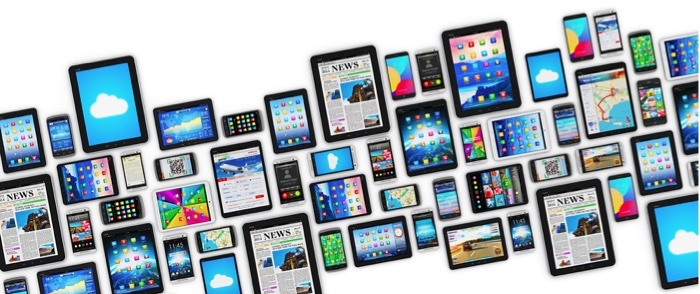The Start of a Beautiful Friendship: HR and the Chief Information Officer

The Chief Information Officer and HR leadership should work together to better manage and implement new digital strategies and technologies.
The hunt for valuable employees and the struggle to retain them never ends. Fortunately for HR, technology promises to provide clarity and insight on human capital management.
As promising as that technology is, it's nonetheless complex and will bear little fruit if not properly integrated with existing digital tools. This is where a chief information officer (CIO) can come to the rescue. No longer consigned to only enforcing IT protocols, a CIO is another strategic partner HR needs it if wants to find and keep highly skilled workers in the digital work world.
A CIO not only offers a nuanced understanding of technology but can also provide insight on recruitment and retention. Most, if not all, employees rely on technology to do their jobs, so it makes sense for HR to enlist the CIO's help and form a lasting partnership.
Digitization Is Rapidly Transforming HR
The chief information officer's role faces a sea of change in duties and expectations. CIOs have had to shift IT from on-site infrastructure to cloud-based services, and are also responsible for incorporating mobile devices and implementing bring-your-own-device (BYOD) policies.
As if CIOs didn't already have enough on their plates, they may experience even more changes in their jobs because of the development of AI and the continuing challenges of cybersecurity. Gartner reports that 95 percent of CIOs expect their jobs to change or be remixed because of digitalization. One development Gartner didn't review but is arguably as important as cybersecurity, AI or BYOD is a CIO's relationship with HR. For that matter, it's difficult to find any survey that indicates just how closely the two departments are working together, but anecdotal evidence shows that HR and IT leaders recognize the importance of melding HCM with technology priorities.
Research firms such as CEB (which is now part of Gartner) and news organizations such as CIO have called for IT and HR leaders to join forces because of the rapid digital revolution in the workplace. As CEB-Gartner accurately observes of this transformation: "The emergence of big data, cloud services, and the digitization or 'app-ification,' as it were, of HR services mean that technology is no longer a mere tool to execute HR strategy: Technology is HR strategy."
Indeed, consider people analytics. Here, automated technologies analyze employee-related data to find and predict patterns on all aspects of HR strategies and processes, all to improve organization-wide performance. People analytics technologies promise to streamline recruiting, for instance, by using algorithms to find ideal job candidates. They also continuously monitor employee performance by automating productivity output and allowing workers and their supervisors to collectively shape electronic job reviews.
Health and wellness technologies are also a big hit in HR departments. Realizing that productivity is tied to employee wellness, HR departments are increasingly subsidizing workers' purchases of wearable fitness devices and investing in other technologies that aim to automatically collect and analyze data on employees' well-being.
HR Has a Tech-Minded Friend
Many HR technology vendors market their offerings as "plug and play," meaning they're good to go out of the box — but technology is rarely that easy. Integration with other systems is a necessary consideration, as is the collection and storage of sensitive data such as employees' personal financial and health information. Not to mention, the quality of the data itself has to match the quality of the technology. An organization that feeds "dirty" and duplicate data into a system will likely get a dirty and jumbled analysis in return.
Cybersecurity, of course, underlies the use of any technology. With increasing use of cloud-based applications, HR leaders need to not only fully understand security expectations and practices, but they should also have a hand in shaping organization-wide security policies. HR will need help with this digital transformation, and who better to lend a hand than the CIO? The CIO is already on the frontline of an organization's digital efforts and can certainly assist HR as it uses technology to become a more strategic partner in the organization's success.
The CIO and CHRO can develop best technology practices for the entire organization, working together to implement guidelines and best practices on cybersecurity, BYOD, data use and other digital fronts. HR can receive the full support of IT as it pursues digital goals such as integrating people analytics and encouraging the use of health and wellness programs.
If HR wants to enhance its HCM efforts and fully realize the expectation that it will be a central cog in business growth, then it needs to look no further than in its own building: the CIO's office.
Stay up-to-date on the latest workforce trends and insights for HR leaders: subscribe to our monthly e-newsletter.



